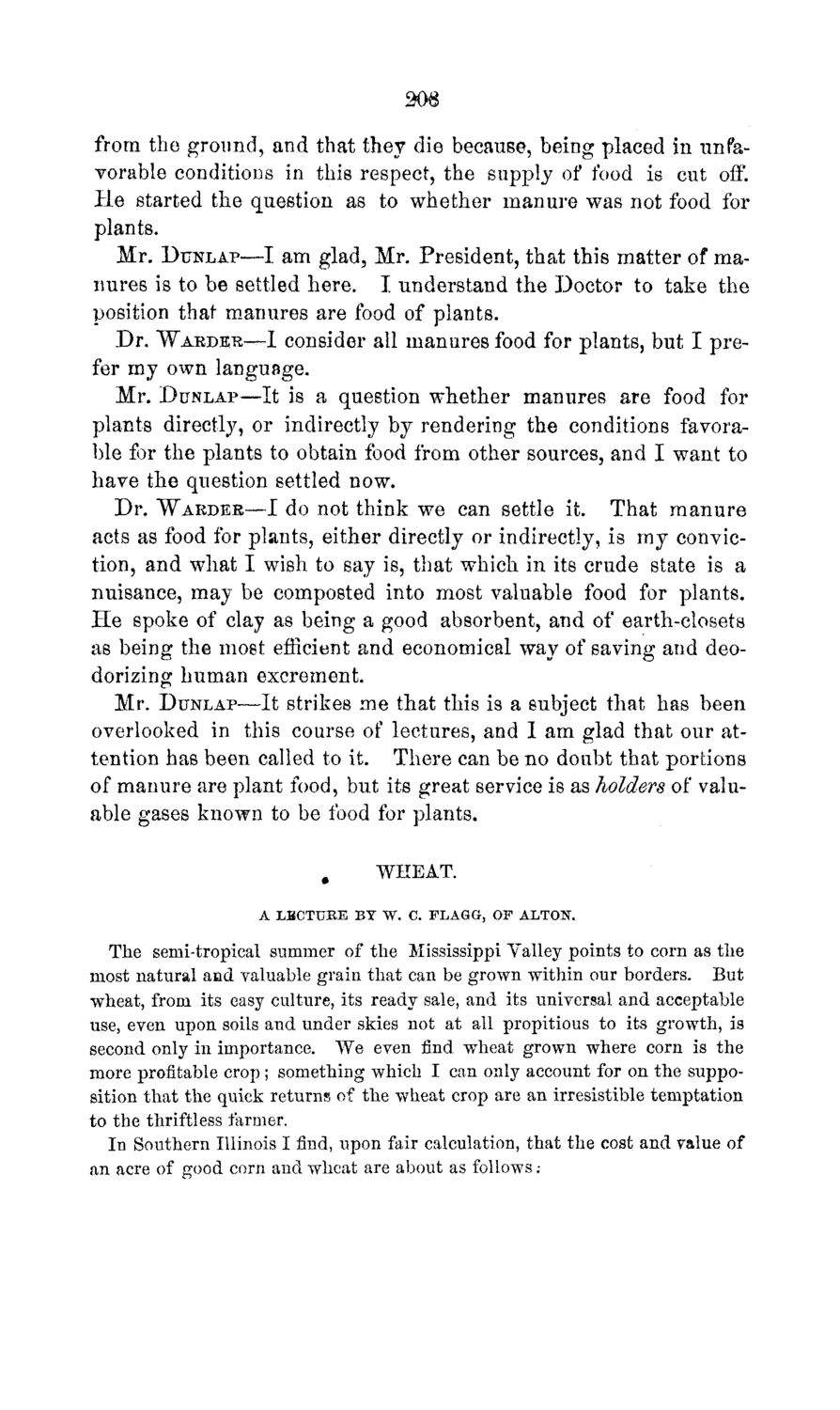| |
| |
Caption: Board of Trustees Minutes - 1869
This is a reduced-resolution page image for fast online browsing.

EXTRACTED TEXT FROM PAGE:
206 from the ground, and that they die because, being placed in unfavorable conditions in this respect, the supply of food is cut off. He started the question as to whether manure was not food for plants. Mr. DTTNLAP—I am glad, Mr. President, that this matter of manures is to be settled here. I understand the Doctor to take the position that manures are food of plants. Dr. WABDEK—I consider all manures food for plants, but I prefer my own language. Mr. DUNLAP—It is a question whether manures are food for plants directly, or indirectly by rendering the conditions favorable for the plants to obtain food from other sources, and I want to have the question settled now. Dr. WARDER—I do not think we can settle it. That manure acts as food for plants, either directly or indirectly, is my conviction, and what I wish to say is, that which in its crude state is a nuisance, may be composted into most valuable food for plants. He spoke of clay as being a good absorbent, and of earth-closets as being the most efficient and economical way of saving and deodorizing human excrement. Mr. DUNLAP—It strikes me that this is a subject that has been overlooked in this course of lectures, and I am glad that our attention has been called to it. There can be no doubt that portions of manure are plant food, but its great service is as holders of valuable gases known to be food for plants. # WHEAT. A LECTURE BY W. C. FLAGG, OP ALTON. The semi-tropical summer of the Mississippi Valley points to corn as the most natural and valuable grain that can be grown within our borders. But wheat, from its easy culture, its ready sale, and its universal and acceptable use, even upon soils and under skies not at all propitious to its growth, is second only in importance. We even find wheat grown where corn is the more profitable crop; something which I can only account for on the supposition that the quick returns of the wheat crop are an irresistible temptation to the thriftless farmer. In Southern Illinois I find, upon fair calculation, that the cost and value of an acre of good corn and wheat are about as follows;
| |